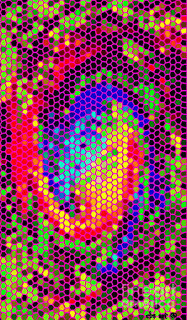The Philosophical Understanding about Right vs. Wrong
 “I am right, and you are wrong.” This is one of the most common arguments between people. Right and wrong are subject to change and to attitude. We have seen it change. We have seen people debate what is right and what is wrong. We do not change our opinion to suit the needs or define some form of respect for others. So philosophically, scientifically and psychologically, what’re the Apple to Apple “Right vs. Wrong” comparison?
“I am right, and you are wrong.” This is one of the most common arguments between people. Right and wrong are subject to change and to attitude. We have seen it change. We have seen people debate what is right and what is wrong. We do not change our opinion to suit the needs or define some form of respect for others. So philosophically, scientifically and psychologically, what’re the Apple to Apple “Right vs. Wrong” comparison?Sometimes right and wrong mean correct and incorrect. Sometimes they mean accurate or inaccurate. Sometimes they mean morally/ethically good or bad. Most of people have been using the words right and wrong in the moral/ethical sense. In that sense, some human actions are objectively and absolutely right or wrong. Other human actions are either subjectively right or wrong or relatively right or wrong. People always looks at the world the way as to how they want it to be, so anything that is not matching their way of looking at the outer world, they consider it as wrong, and what’s matching their vision seems right to them. It’s a complete individual phenomenon, and right and wrong is determined completely about how we perceive the circumstances whatever disturbs one's peace of mind is wrong. Right and wrong also comes in shades of grey. Right and wrong is a very hard thing to define. It depends mostly on your perspective experiences and situation. Philosophically, there isn't always a right or wrong choice in any situation and there is a lot of grey. This makes it very hard to choose a right or wrong from your choices. We challenge, we debate, we learn the nature of each other through the aspect of civil and respectful dialog. We shift and move our thoughts through this process, while growing in mind and spirit to the competitive nature that is the essence of being human. There is nothing called right. But then, the impact of our deeds, is spread across primordial cycles of cause and effect, often, coming back to us beyond the boundaries of our memories. Right and Wrong are subjective aspects of how we choose to live our life, but the essence of life, the ability to live, act and grow requires a sense of collaboration, that practical aspect of choosing to work together, regardless of the philosophical differences between us. The problem of questionable RIGHT or WRONG comes when they are based on beliefs, which are developed by human thinking. Even the rules, which are made by humans come in for questioning.
 The right or wrong are two polarities; because these two things seems to be or supporting each others, right and wrong is the same thing like a coin with two sides, because if you think that this is right, then how can we consider this is right, only beneficial factor not non beneficial factor. Sometimes there is an obvious right or wrong solution to a problem which you have. But when someone else looks at the problem from their perspective, they may come up with different ideas as to what is right or wrong. Several aspects to the question: -Is it an absolute right and wrong, or is it a continuum of more right or more wrong in comparison to the alternatives. -Is it possible to have definitive labels of right and wrong for some actions, but less clear for others-Is there objective truth to some actions where we can say they are right or wrong, regardless of public opinion, laws, culture, etc. And is there subjective truth to some where they are right or wrong depending on how society defines them.
The right or wrong are two polarities; because these two things seems to be or supporting each others, right and wrong is the same thing like a coin with two sides, because if you think that this is right, then how can we consider this is right, only beneficial factor not non beneficial factor. Sometimes there is an obvious right or wrong solution to a problem which you have. But when someone else looks at the problem from their perspective, they may come up with different ideas as to what is right or wrong. Several aspects to the question: -Is it an absolute right and wrong, or is it a continuum of more right or more wrong in comparison to the alternatives. -Is it possible to have definitive labels of right and wrong for some actions, but less clear for others-Is there objective truth to some actions where we can say they are right or wrong, regardless of public opinion, laws, culture, etc. And is there subjective truth to some where they are right or wrong depending on how society defines them. There is no need for everything to have the same standard or criteria. Many times right and wrong are subjective, from communication perspective, one should always gain empathy from other point of view, then you could be more flexible to share the “right” things with others, but also be open to “wrongs,” not necessary real wrong, perhaps the complementary viewpoint to co-paint a big picture with full spectrum of colors. Follow us at: @Pearl_Zhu
Published on July 06, 2015 23:34
No comments have been added yet.



